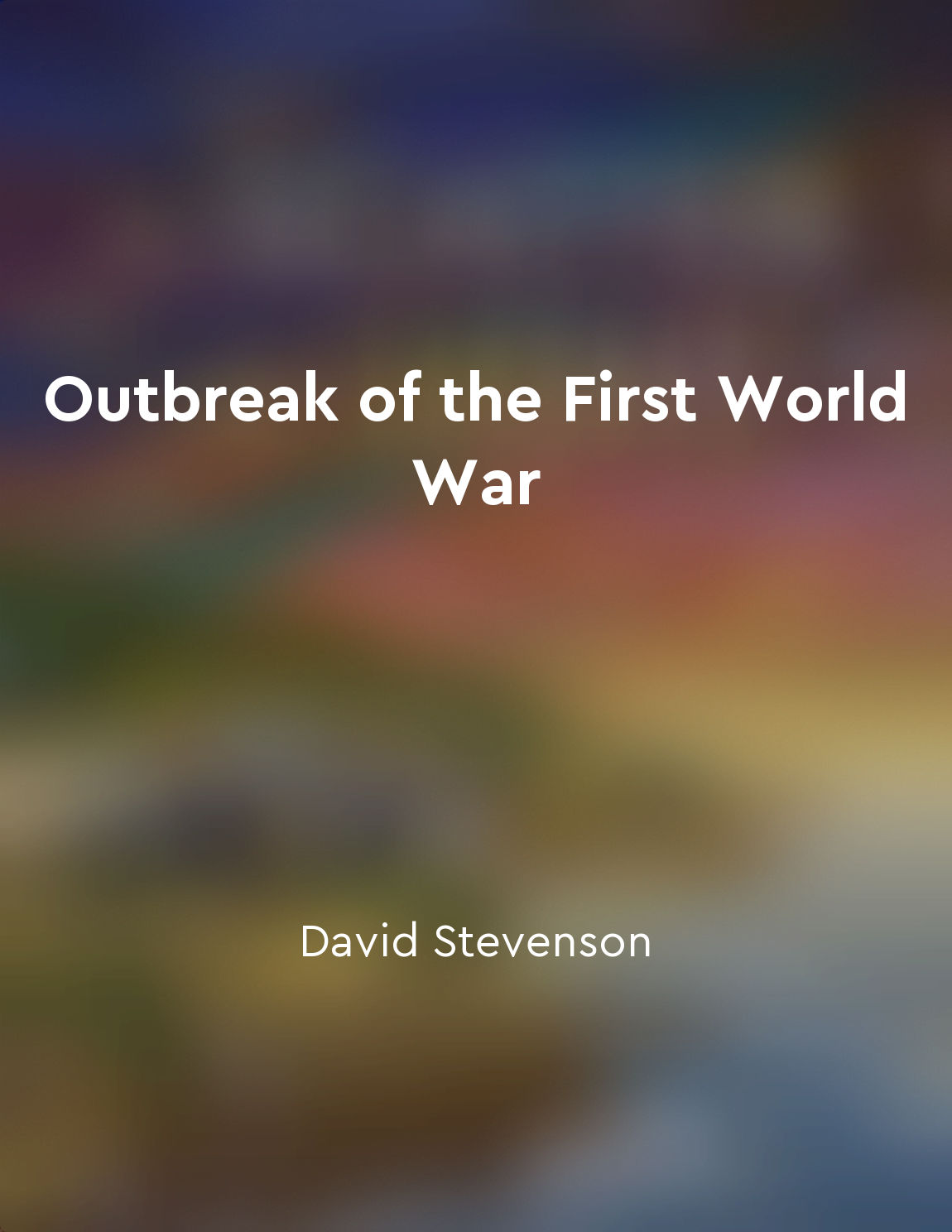July Crisis deepens the brinkmanship from "summary" of The Origins of the First World War by Annika Mombauer
The July Crisis marked a turning point in the lead-up to the outbreak of the First World War. As tensions escalated between the Great Powers, each country engaged in a game of brinkmanship, pushing the limits of international diplomacy to see who would back down first. The crisis deepened as each nation sought to assert its own interests and maintain its position of power in Europe. Throughout the crisis, key players such as Germany, Austria-Hungary, Russia, and France engaged in a series of ultimatums and military mobilizations, raising the stakes with each move. The assassination of Archduke Franz Ferdinand of Austria-Hungary in late June 1914 served as the catalyst for the crisis, with Austria-Hungary demanding retribution from Serbia. As Austria-Hungary issued an ultimatum to Serbia, Germany pledged its full support, while Russia mobilized its forces in response. France, closely allied with Russia, also began preparations for war, further escalating the situation. Each country involved in the crisis sought to assert its dominance and protect its interests, leading to a dangerous game of brinkmanship that brought Europe to the brink of war.- As well as the willingness of each nation to risk war in order to achieve its goals. The concept of brinkmanship became increasingly prevalent as the crisis unfolded, with each country testing the limits of the others' resolve. The resulting tension and brinkmanship ultimately set the stage for the outbreak of war in August 1914, as diplomacy failed and military conflict became inevitable.
Similar Posts
The power of narrative and storytelling shaped the way people understood their place in the world
Throughout history, human societies have relied on narrative and storytelling to make sense of their existence and their place ...

Rapid spread of hostilities
The rapid spread of hostilities is a central feature of the outbreak of the First World War. In the summer of 1914, a series of...
The Great War was not inevitable
The idea that the Great War was not inevitable challenges the conventional narrative that portrays the events leading to the wa...
She ruled as empress for over thirty years
For more than three decades, Catherine the Great held power as empress of Russia. Her reign was marked by a series of significa...
Blockades impact civilian populations
Blockades have far-reaching consequences beyond simply cutting off the flow of goods to a particular area. The impact of blocka...
The military mobilization of powers set off a chain reaction
When one nation mobilized, others followed. The mobilization of men, money, and munitions set off a chain reaction of fear and ...
The war ushered in a new era of warfare
The Great War signalled a seismic shift in the nature of warfare. Gone were the days of traditional battles fought on open fiel...

